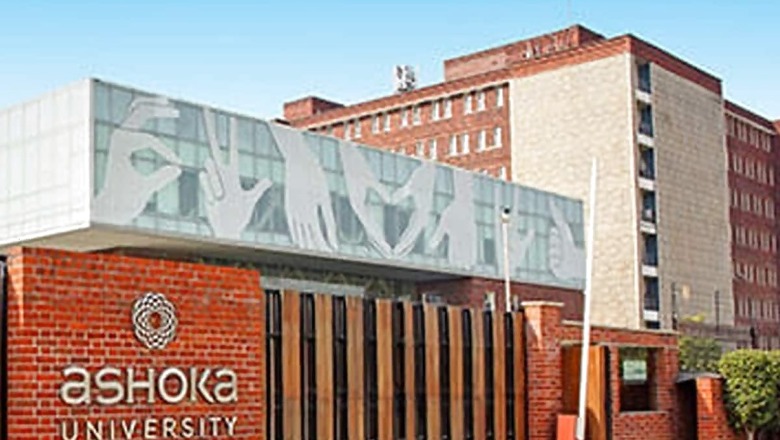
views
Founders of Ashoka University, which has been at the centre of an academic freedom debate following two high profile resignations, on Monday said they respect the autonomy of the institution and will appoint an Ombudsperson by the month-end to encourage free expression. "Our aim is that through this and already existing processes we will be able to ensure that Ashoka lives up to its vision of being a space for free enquiry, free expression, intellectual honesty, respect for the dignity of all human beings and openness to constructive change," the Board of Trustees said in a statement.
They said to maintain separation of academic functioning from founders, it is necessary to establish certain protocols and processes. "Many of these are already in place in bodies like the Academic Council, the Board of Management and so on." "These need to be strengthened and this can only happen through a more intensive consultation within the faculty. If necessary and required, the Founders are open to helping out in the task of strengthening these processes," it said.
"Once again, the Founders want to articulate their deep commitment and respect for the autonomy of the University and its academic functioning." "With this in mind the Founders are supportive of the appointment of the Ombudsperson (as had been decided earlier) by 31st May 2021," the statement said.
"The Chancellor and Vice Chancellor will propose candidates for this position for approval by the Governing Body." This comes days after political commentator Pratap Bhanu Mehta, who had resigned as vice chancellor of the university two years back, chose to step down as professor, saying that the founders made it "abundantly clear" that his association with the institution was a "political liability". This followed noted economist Arvind Subramanian resigning in solidarity. The Board said liberty, which includes the right to express oneself freely, is integral to life itself. "Ashoka University, fashioned as a liberal arts university, has enshrined the freedom of expression in its very ethos. More formally, the rights and responsibilities of faculty to articulate themselves freely is recorded in chapter/section 8 of the Faculty Handbook and Guidelines," it said.
The founders, it said, have never interfered with, nor do they intend to interfere, with the academic functioning of the university. This even though they have devoted resources and energy to establish Ashoka University. "'Academic functioning' in this context includes not only how and what faculty teach, how they assess, how they are recruited and how they secure tenure but also their freedom to write and speak in their chosen fora and on their chosen themes," the statement said.
"While the Founders stand apart from the academic functioning of the University, they also see themselves as being responsible for protecting and upholding the vision and the aims of the University they have helped to establish." Stating that students also have valid concerns about their freedom of expression and the need to be heard by various decision-making bodies, the statement said the founders are conscious of this. "All this cannot, of course, be achieved overnight. Ashoka will always be a work in progress. The present moment provides an opportunity to make a fresh start by collectively reaffirming our faith in the vision and ethos of Ashoka.
"We seek to work together to make Ashoka not only one of the best universities in the world but also an institution that makes a difference to the world," it added.
Read all the Latest News, Breaking News and Coronavirus News here















Comments
0 comment